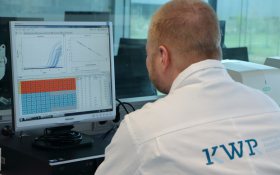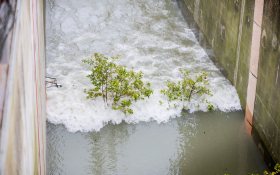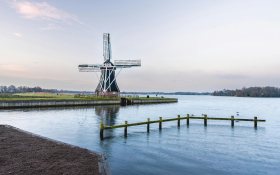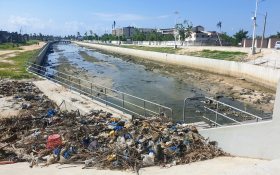Bastiaanssen appointed Special Chair of Global Water Accounting at UNESCO-IHE, the Netherlands
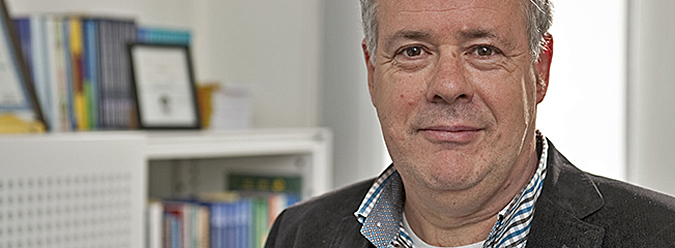
Professor Wim Bastiaanssen has been appointed as the Special Chair of Global Water Accounting at UNESCO-IHE.
The Institute took the initiative in close collaboration with the International Water Management Institute and the United Nations Food and Agriculture Organization.
The Special Chair will be principally based at UNESCO-IHE, but will regularly visit IWMI and FAO offices.
Background in irrigation and earth observation
Professor Bastiaanssen is a guest researcher at IWMI and is a professor at the Delft University of Technology where he holds the Chair of Water Resources Management and Remote Sensing. He has a background in irrigation and drainage engineering and has a PhD in agro-hydrology, soil physics and groundwater management.
His interest is to exploit earth observation data to improve water management worldwide.
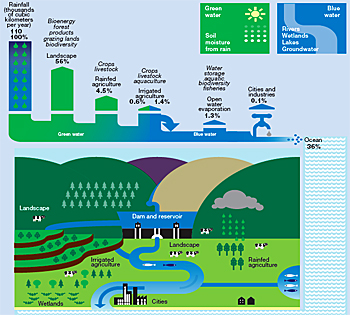 Example of water accounting of global water use.
Example of water accounting of global water use.
Important to global water governance
A system of water accounting has so far been missing as an important element in the emerging system of global water governance. In view of the great water challenges that the world community is facing, Unesco-IHE and its partners, the International Water Management Institute (IWMI) and the United Nations Food and Agriculture Organization (FAO), joined forces to pro-actively create and operationalize the research field of global water accounting.
The Special Chair of Global Water Accounting will act as a catalyst and ambassador of good water science and education.
Research in global water accounting
The concept of water accounting provides a coherent and consistent water resources reporting methodology that comprises hydrological processes, distribution of water to various competing sectors, the consumption of water and the ecosystem services that result from that consumption.
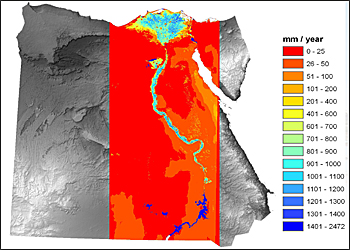 Example of water accounting in a river bassin (Nile), using satellite data.
Example of water accounting in a river bassin (Nile), using satellite data.
The Special Chair will initiate research and the development of an operational system, and provide the required education and training to graduate students and professionals.
The research directions of the chair will focus on the collection of data sets from global hydrological models, remote sensing techniques and thematic data bases, such as irrigated areas, waste water treatment plants, environmental flow requirements etc.
New integration tools for spatial data from multiple sources and multiple scales will be developed as part of the chair's activities. Consistency and reliability of the water flows, fluxes, stocks and water consumption will be investigated.
The uncertainty of these data sets and the implication on the accuracy of the water accounts will be described.
(read more on www.wateraccounting.org)
This news item was originally puiblished on tyhe website of Unesco-IHE.
More information
Unesco-IHE
Delft, the Netherlands
+31 15 215 17 15
www.unesco-ihe.org
